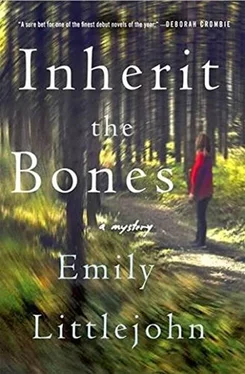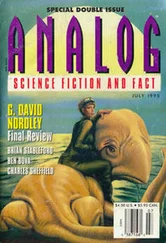“Nothing. I found a hat and thought maybe it was yours,” I improvised. “But I just remembered, you weren’t wearing a hat, so forget it. Hey, when’s the real show?”
She gave me a squinty-eyed look, and then answered. “Twenty minutes. You guys should stay and watch, it’s going to be great. We’ve worked out this whole new routine to this really cool Spanish-funk music, to go with the Zorro outfits. And, for the show, we’re using swords!”
Finn looked impressed. “Real swords? Up there?”
Tessa nodded and clapped her hands together and bounced on the balls of her feet. “Uh-huh. Very, very cool.”
“Sure, we’ll stay. But then I want to talk to you again, after, okay?”
She nodded and then bounced away toward the other trapeze artists. The male acrobat, Doug Gray, grabbed her by the waist and, lifting her in the air, spun her around until her squeals were so loud we could hear them from across the tent.
“I don’t like that guy.”
“You don’t even know him. Or her,” I said, and turned Finn by the shoulder until he faced me. “I’m serious. She was Reed’s girlfriend. Her roommate, a redhead named Lisey, is in love with her. You heard Tessa at the station yesterday-she practically accused Lisey of murder. Last night, she was in my house offering back rubs. It’s all a bit messy.”
“Yeah, yeah… wait, what? She has a lesbian girlfriend? That’s kind of hot…”
I rolled my eyes and dragged him out of the tent. “If we’re going to watch the show, I’m going to need that hot dog.”
We ordered and ate at a picnic table under an awning, next to a teenage couple with their hands in each other’s back pockets, and a harried-looking mother with five children. Blond hair stuck out of her ponytail like pieces of straw, and she’d lined up the buttons on her pink shirt wrong, so that the shirt hung slightly crooked on her small frame.
Three of the kids, towheaded boys with light eyes and fair skin, were definitely hers, but the other two must have been friends of the family. The mother was nicer to those two.
My hot dog was delicious and I chased it down with a freshly squeezed lemonade. A breeze blew over us and in the shade, my hunger satiated, I could almost imagine a decent conversation with Finn.
“So, Finn, three years ago. The Nicky Bellington case: round one. You were lead, right? With Moriarty?” I asked.
He leaned back, pleased to be asked. “We got the call around one in the afternoon. One of the kids had run down the trail until he was in cell phone range, and he’d called his parents. They’d called us. We hit the trail hard and got to the overlook around four. It was a mess. Kids crying, Paul Winters in shock. He’d just started up that youth group, the Forward Foundation, remember? It seemed like it was going to be the hottest thing in town. Annika was there, too, of course. She looked different back then, kind of chubby. Not so pretty.”
“Were the Bellingtons there? The mayor, or Ellen?”
“No, while we were hiking in, Chavez drove over to tell them in person. The first time we spoke to them on record was a few days later.”
“When you searched his room, right? What made you do that? Wasn’t it clearly an accident?”
Next to us, the teenagers had left, and the mother was packing up the five kids. Another breeze blew in, stronger than the first, and suddenly napkins and plates were flying all around us. The kids laughed and jumped about for paper goods and the mother sat down and sighed.
I gave her a smile and she rolled her eyes and then smiled back and shrugged.
Finn continued. “It was Moriarty’s idea. We were pretty sure by then the whole thing was just a tragic accident, but he wanted to be certain, if he was going to sign off on the report, that there wasn’t a suicide note. Plus, you know, he was pals with Frank Bellington, Nicky’s grandfather. I think he felt a responsibility to cross every T and dot every I . So, we did the whole enchilada. We inventoried every damn thing in the kid’s room while his mom’s standing in the doorway, sobbing hysterically.”
“When we were at the house yesterday, it seemed like you all hadn’t met.”
“C’mon, Gemma. Like they’re going to remember the cops who searched their dead kid’s room three years ago?” Finn said.
He leaned forward and ate the last bite of his hot dog. His suit was spotless, as usual, while I’d managed to sprinkle my sundress with tiny drops of mustard. A couple of crumbs from the bun rested on my tummy and I brushed them away. They fell to the ground silently, joining dozens of other crumbs and bits.
The blond woman finally got the kids corralled and marched them off to a trash can, their small hands full of wayward napkins and paper plates. They stuffed the trash into the can and then ran off toward one of the game booths, and I remembered the term for the guys that ran them: peddies.
As in peddlers. Or pedophiles. I shivered.
“It was strange, though,” Finn said. He traced a circle on the picnic table with his finger.
“What?”
“How insistent Moriarty was that we search the kid’s room. I understood his concerns. But there was nothing, absolutely nothing that pointed toward a suicide. I tell you, if we’d have found a note, I’d have immediately suspected it was planted and that the whole thing was murder,” Finn said. “Everything about that day screamed accident.”
“Huh. Sure doesn’t anymore, does it?” I stood and tossed my trash and picked up a napkin the kids had missed, a smear of dried ketchup staining the center of it like a bloody thumbprint. “We should get back, the show’s going to start any minute.”
The tent was packed and we found seats toward the back, up high in the stands. Colorful flamenco music competed with the chatter of the crowd, and all around us, families shared popcorn and cotton candy and peanuts. I watched as more than one person cracked a peanut and then tossed the fibrous shell onto the ground.
In the front row, slightly to my left, I saw a familiar head of red hair: Lisey, Tessa’s roommate. She sat next to another young woman, a blonde in a white tank top. The two were speaking to each other and although I was too far away to make out any words, the conversation appeared heated. Lisey’s posture was rigid, and her hand repeatedly rose as though to dismiss her companion. Finally, with a look of disgust, Blondie stood and stormed out of the tent.
Lisey watched her go and then shook her head and turned her attention to the ring in the middle of the tent, where a tall man in a black tuxedo stood. His height was exaggerated even more by a top hat and cane that he bandied about before him.
I nudged Finn and pointed to the back of Lisey’s head and said her name. He lifted an eyebrow.
“The lesbian?” he whispered, and I rolled my eyes and nodded.
The music died and the ringmaster said, “Ladies and gentlemen, boys and girls, may I be the first to welcome you to the most impressive, the most incredible, the most amazing death-defying show on Earth.”
He had to be almost seven feet tall, all arms and legs, like an enormous alien insect. He bandied about his cane and the crowd cheered in response.
“What you are about to see might shock you… it may surprise you… but it will stun you,” he roared and the crowd roared back.
The man next to me had just tossed a handful of popcorn in his mouth and when he shouted his approval at the ringmaster, he sprayed the back of the head of the woman in front of him with a fine mist of butter-tinged spittle.
I winced and scooted closer to Finn.
“Put your hands together for the greatest group of acrobats on Earth, the Fellini Brothers’ Amazing Trapeze Troupe!” he said. With another flourish of his cane and a tip of his hat, the man bowed to the audience and stepped out of the spotlight. The music came back on with a vengeance, louder and more pulsing than before.
Читать дальше

![Лаура Бренз - Потомственная ведьма[Inherit the Witch]](/books/79609/laura-brenz-potomstvennaya-vedma-inherit-the-witch-thumb.webp)










